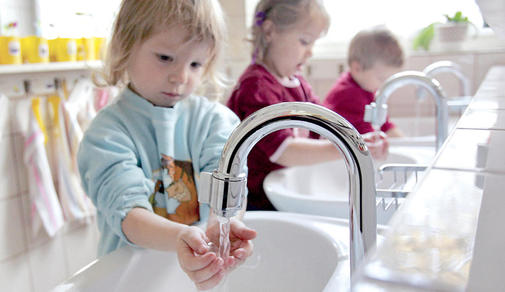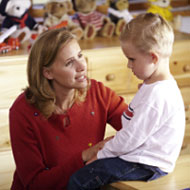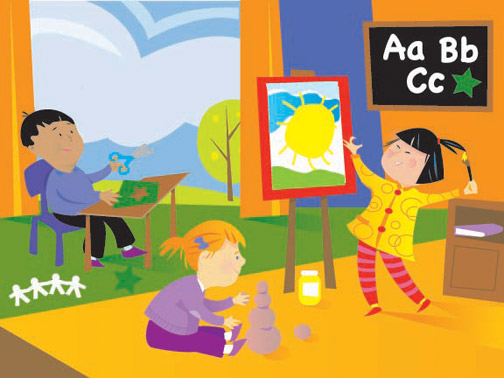One of the fears parents often have of sending their children off to kindergarten is the exposure to a public place where the protection of the home is no longer possible. It is true that when your child goes to school with other children, the opportunities for illness and contamination are much more frequent. But the value of being in school with others and the social and educational value mean that we as parents must prepare our children to begin to spend time in a public place and that we do all we can to help them stay healthy and safe each and every day.Part of preparing your child to stay healthy even in a public venue like kindergarten is to enlist the aid of your child’s paediatrician. She can make sure your kiddo is up to date on shots and that any vulnerabilities are well known. A good check up and getting all necessary shots before school starts will insure your child’s immune system is well equipped to deal with the additional exposure to germ
 But you can also teach your child good hygiene habits at home and engrain them in her lifestyle so they will stick with her even when she is at kindergarten and she doesn’t have you there to protect her. This includes good bathroom habits, an obsession with washing her hands as often as possible, being aware of others who are sniffing and who may not be taking good care of themselves to avoid contamination and using good table habits so the foods your child eats are clean and safe for consumption at lunch.
But you can also teach your child good hygiene habits at home and engrain them in her lifestyle so they will stick with her even when she is at kindergarten and she doesn’t have you there to protect her. This includes good bathroom habits, an obsession with washing her hands as often as possible, being aware of others who are sniffing and who may not be taking good care of themselves to avoid contamination and using good table habits so the foods your child eats are clean and safe for consumption at lunch.
Good lifestyle habits at home will benefit the child at school as well. This includes a well developed schedule of getting at least eight hours of sleep each day and a regular diet of all the major food groups, particularly fruits and vegetables as these foods will give your child’s body the defences it will need to ward off illness if there is an exposure to germs.
Good dietary habits will be something that is taught as well as enforced at home. You can send your child a lunch to assure that at least she is taking the right kinds of foods. But the best defence is to make sure your child is aware of her own nutritional needs as it pertains to resisting illness so she also eats well when getting food from the cafeteria and stays healthy and regular every day.You don’t want to send your child to school paranoid or afraid of other people. But some simple rules of how to interact with others in a way that is social but not risky should be part of your training as you raise the child. Just as you know not to eat after someone else using the same utensil, not to eat anything that has been on the floor or not to eat anything that you don’t know the origin of, these are basic health rules that children may not know if they are not taught. So be a conscientious parent and equip your child to avoid hazardous hygienic situations. Even if they are innocent dangers, they are dangers none the less.The health preparations for kindergarten includes things parents can control at home such as check ups, getting good sleep and nutrition and gong to school healthy and clean. But they also include things you teach your child so she can keep herself safe and healthy even in the middle of a large group of other kids. By giving her these skills from the first day of school going forward, you are doing your job as good parents to assure she is ready for school each and every day from kindergarten all the way through to college graduation.







